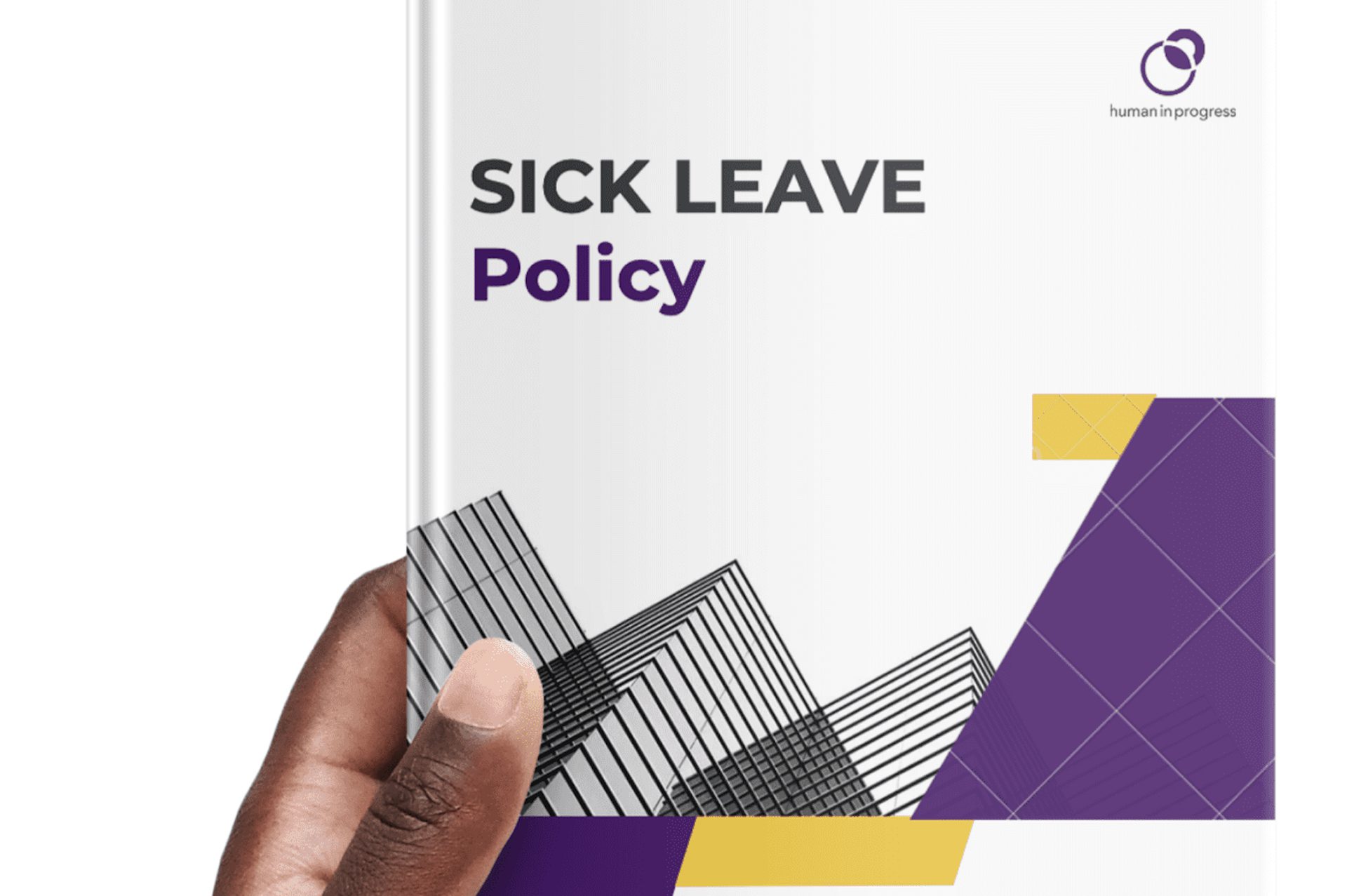Sick Leave Insurance Netherlands is important as employees are entitled to paid sick leave from the first day of illness for up to two years if the illness prevents them from working. During this period, the employer is responsible for covering the employee’s salary.
Sickness benefit in the Netherlands is subject to strict regulations, requiring adherence to certain procedures by both the employer and employee.
The obligations of both parties are straightforward according to Dutch employment law and should be reflecting in the company’s Sick Leave policy.
The absence insurance for employers in the Netherlands is a non-mandatory employee benefit, but the insurance could be considered by companies to top up the employee’s sickness benefit.
☰ Table of Contents
Dutch Law on Sick Leave
The Dutch Working Conditions Act [Arbeidsomstandighedenwet/Arbowet] governs the health and safety standards in the workplace. The law outlines the rights and responsibilities of the employer and employees, temporary staff, and subcontractors.
- Sickness means, as a result of a physical or mental condition, as defined in Article 7:629 of the Dutch Civil Code (BW), the employee is not able to perform or fully perform the work agreed to during the term of employment. In this article you will read more about the Sick Leave Netherlands policies and procedures.
- Reintegration [Reintegratie] means working towards full recovery (if possible), and this is the main objective during the Sick Leave.
Sickness Act in the Netherlands / Sick Pay Continued Payment of Wages
The employer is obliged by Dutch employment law (Dutch Civil Code article 7:629) to continue the sickness benefit payment during the first year and second year of the sick leave of the employee. The sickness benefit payment by Dutch employment law is for two years a minimum of 70% of the employee’s wages.
However, it is common market practice for most companies to pay 100% of the employee’s salary during the first year of illness, or a different percentage as specified by the Collective Labour Agreement. The percentage for the second year of illness may vary depending on the company and industry.
What Is an Absence Insurance?
In the Netherlands, absence insurance, absenteeism insurance or sick leave insurance is referred to in Dutch as ziekteverzuimverzekering. It is an optional insurance, designed to cover the financial risks associated with employee illness or injury.
This company insurance in the Netherlands might be a tool for employers to manage the financial impact of employee sick leave and to ensure compliance with legal obligations regarding the Dutch wage continuation for the maximum duration of two years.
In the Netherlands, the company absence insurance is not mandatory, but it is an optional employee benefit for employers to mitigate the financial risks associated with employee absenteeism due to illness or injury.
Considerations to Purchase an Absence Insurance
Sick leave insurance in the Netherlands offers significant benefits, including financial security for employees, protection for employers, and legal compliance. However, it also comes with challenges such as the cost of premiums, complexity of claims, and potential for increased absenteeism.
Any organisation should consider several factors and requirements to make an informed decision that best suit the needs of the business and their employees:
-
1. Legal Obligations of Dutch Sick Leave
Although absence insurance itself is not mandatory, employers are legally required to pay at least 70% of an employee’s salary during the first two years of illness. This legal obligation can be financially challenging, especially for small and medium-sized companies.
-
2. Company Size and Financial Stability
The size and financial health of the company are critical factors. Larger companies with robust financial reserves might manage these costs internally, whereas smaller companies with limited financial resources might find it difficult to sustain prolonged salary payments and benefit more from purchasing insurance.
It is important to decrease the cost of illness (COI), as 1% reduction in absenteeism can lead to a 2% reduction in wage costs.
-
3. Industry and Risk Profile
Companies in industries and the nature of the business with higher rates of workplace injuries or illnesses, such as construction or manufacturing, might be more inclined to purchase absence insurance.
Similarly, a company with a history of high absenteeism rates may consider it necessary to manage potential future costs.
-
4. Workforce Demographics
The age, health, and turnover rates of the workforce can influence the decision to purchase an absence insurance. In general, a higher health risks might lead to more frequent or long-term sick leave.
-
5. Cost-Benefit Analysis
Employers must weigh the cost of insurance premiums against the potential financial impact of employee sick leave. This involves analysing the premium costs, coverage levels, waiting periods, and any additional services provided by the insurance company.
The coverage of an absenteeism insurance may differ per insurer. but should include the costs of continued payment of wages of in the first two years of the employee’s illness.
Key Aspects of the Absenteeism Insurance
-
Obligation of Wage Continuation Obligation
Dutch employers are mandated to pay at least 70% of an employee’s salary during the first two years of sickness, with the first year often being 100% depending on the terms of employment. This obligation can be financially burdensome, especially for small and medium-sized enterprises.
-
Coverage of Sick Leave Insurance Netherlands
Absence insurance helps employers manage the financial risk by covering the costs of continued salary payments for employees on sick leave. It can also cover additional costs associated with absenteeism, such as hiring temporary replacements or implementing reintegration programmes to help employees return to work.
-
Insurance Policy Variations
There are various types of absence insurance policies available, with different coverage levels, waiting periods (time before the insurance starts to pay out), and premium costs. Organisations can choose a policy that best fits their financial situation and risk tolerance.
-
Reintegration Support
Many absence insurance policies include support services for reintegration and absenteeism management. This can involve occupational health services, return-to-work programmes, and other measures aimed at reducing the duration and frequency of employee absences.
-
Cost of Absence Insurance
The cost of absence insurance is a premium between 1.5% and 5.5% of the total wage costs and will vary due to factors such as:
- The size of the company including the total wage costs.
- The industry of the company.
- The absenteeism percentage over the previous 3 years.
Overall, absence insurance in the Netherlands is a crucial tool for employers to manage the financial impact of employee sickness and to ensure compliance with legal obligations regarding wage continuation during illness.
Underlying Causes of Absenteeism
Understanding the underlying causes of absenteeism is crucial for organisations in the Netherlands aiming to mitigate its impact on productivity and employee well-being. Absenteeism can be prevented, controlled, and influenced by employers and it is important to know the 10 underlying causes of absenteeism in the workplace:
- Not Registering Short-Term Illness
- High Workload and Stress
- Harassment and Bullying
- Alcohol and Drugs
- Childcare Issues
- Financial Problems
- Organisational Culture and Change
- Employee Disengagement
- Poor Working Conditions
- Lack of Innovation and Technology
Sick Leave Policy
The law sets all sorts of obligations in the weeks of illness for both the employee and the employer to facilitate as much as possible the speedy recovery of the employee.
A well-crafted Sick Leave policy in the Netherlands for a company is not just a legal necessity; it is a strategic guide to navigate the complexities of sick leave management in accordance with the Permanent Incapacity Benefit (Restrictions) Act.
The comprehensive Absence Netherlands Policy in English or in Dutch outlines the company’s code for employees who are ill and are unable to attend work and includes:
- The scope and explanatory of parties involved in the process.
- How to report sick leave, return and partly return from Sick Leave.
- The percentage of sick pay including the payroll process.
- Mandatory steps by law for employer and employee during the short-and long-term sick leave.
- Procedure of frequent absenteeism.
- Glossary of terms.
Protect your company and ensure compliance with Dutch regulations by drafting a mandatory policy.
Connect with our seasoned employment lawyer to craft the sick leave policy for your business.
If you are in need for a company Sick Leave guidance, get in touch with us!
More Information
- Sick Leave Policy Netherlands Guidance for HR and Entrepreneur.
- Workplace Health and Safety Netherlands Regulations.
- Occupational Health & Safety Service Provider Netherlands: What is an Arbodienst?
- Top 10 Underlying Causes of Absenteeism in the Workplace.
- FAQs: Sick Leave Netherlands.




